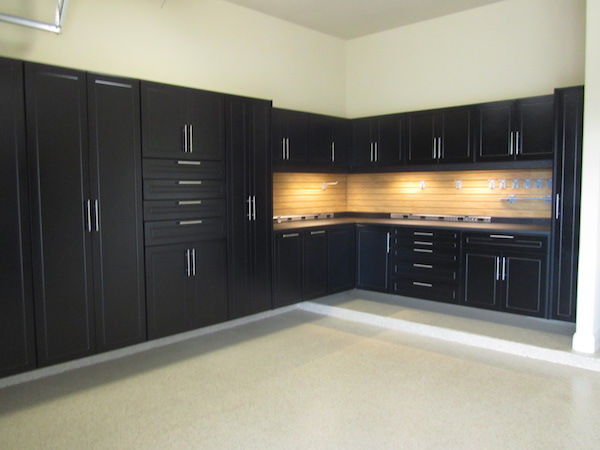
Garage heaters are an excellent product for combating cold garages and workshops during the winter months. Whether you pass your time in your garage or outbuilding working on old cars, building your own furniture, or simply tackling the day to day chores and projects that come with owning a home, a good garage heater can be the difference between passing those short, cold winter days doing what you enjoy, or sitting in your recliner, twiddling your thumbs and waiting for better weather to make your workplace a more hospitable environment. Depending on your heating needs and your budget, there are a plethora of heaters out there to provide a solution to your garage or shop heating requirements.
Electric, Propane, Natural Gas and Radiant Heaters
Garage heaters come in many shapes, sizes, designs and styles, each suited to particular applications. The most popular and easy-to-use models, especially for the average Joe, are electric garage heaters.
- Electric. They provide more than sufficient heat for small areas such as residential garages and outbuildings, and their size and portability make them ideally suited for weekend handyman uses. Add to that thermostat controls so you can set the temperature to your liking, safety features such as automatic shut-offs in case of overheating, as well as newer energy efficient models, and you can’t go wrong with a good electric garage heater for your garage or shop. If you need a little more heating power, consider some of the other models on the market.
- Propane. Propane heaters are excellent options for inexpensive heating, and again, the portability of propane fueled models make them ideal if you’re in need of a garage heater that can be moved from one workspace to another with minimal trouble. If you’ve got a little bigger budget and more permanent heating needs, consider a natural gas or radiant model for your workspace.
- Natural Gas. Natural gas heaters are essentially small furnaces installed in the areas you need them most, providing high energy efficiency and excellent warming capabilities for any room. However, once installed they are there to stay, so make sure you don’t need a model that you can move from space to space or store easily in a corner when summer hits.
- Radiant Heat. Radiant heaters heat by sending out infrared rays that heat up all objects they come in contact with—be it floors, tools or a person—and provide an excellent, highly efficient alternative to more traditional garage heaters. Radiant heaters are more expensive, however, and often run on natural gas, so you’ll need to weigh their efficiency and warming capabilities against the convenience of a more portable electric garage heater or propane powered unit as well.
Ready to start your garage heater?
Find ProsSave Money—Insulate Your Garage or Shop
The other thing you’ll want to consider, whether you’re a dedicated craftsman or a weekend warrior, is insulating the workspace you’re using. Most garages and shops aren’t sufficiently insulated, which is the main reason they are so frigid when the mercury drops. If you do spend a great deal of time in these areas, consider properly insulating them in order to make them more inviting places as well as to save money when it comes keeping them warm. Think about insulating shop and garage walls and ceilings, just as you’d insulate your home, in order to more efficiently retain heat and keep out cold. And consider having an insulated garage door installed to boot. Cheap, non-insulated doors are one of the primary sources of heat loss when it comes to garage and shop areas, so spending the extra money for a higher rated, insulated garage door can pay huge dividends in the end, and the increased energy efficiency will easily pay for the extra cost of upgrading over time.
Finally, regardless of your garage heating needs, talk to a professional in order to be sure your wants will be met by your purchase. Contact a reputable garage heater retailer to ensure you get the right model for your workspace. Be sure to hire a contractor, or other experienced installer, if you’ve decided on a natural gas model to ensure the unit is installed properly, and so you won’t have to worry about safety issues once your new heater is finally up and running.
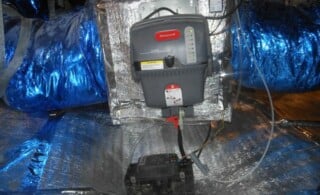 Whole House Humidifiers
Whole House Humidifiers 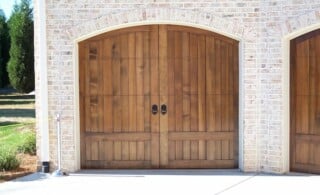 Garage Doors
Garage Doors 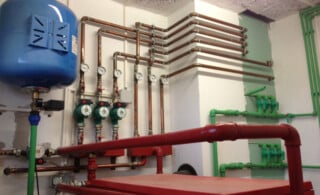 Choosing Green: Boilers and Radiator Heating Systems
Choosing Green: Boilers and Radiator Heating Systems 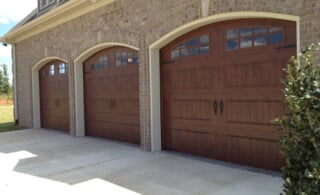 Garage Remodeling Prep Steps
Garage Remodeling Prep Steps 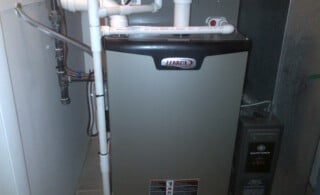 Can You Delay Replacement when the Furnace Breaks? Maybe…
Can You Delay Replacement when the Furnace Breaks? Maybe… 

Are You Familiar With This Topic? Share Your Experience.